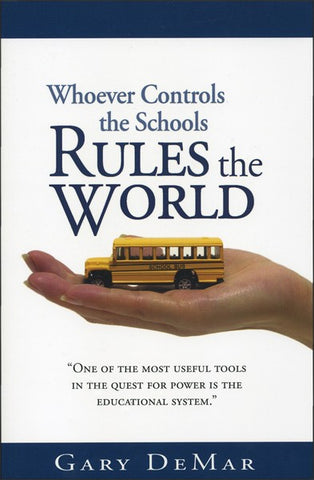Gary interviews Ray Moore with Exodus Mandate about homeschooling, Christian schools, and a debate that Ray did over America’s Christian history.
When Israel was taken to the borders of the promised land, twelve spies were called on to survey the land and report their findings to the nation (Num. 13). Before choosing twelve representatives for the task, God promised the land would be theirs: “Send out for yourself men so that they may spy out the land of Canaan, which I am going to give to the sons of Israel; you shall send a man from each of their fathers’ tribes, every one a leader among them” (13:2). No matter what the spies encountered, the promise of God should have had priority and overruled any desire to retreat. When the spies returned, ten brought back pessimistic (unbelieving) reports (13:28–29, 31–33). Two spies, Joshua and Caleb, returned with optimistic reports because they believed God and not the fears of men, nor the circumstances they encountered (13:30). It is important to note that Caleb never denied that there were “giants in the land,” he simply believed that God was stronger (obviously) than any army of giants. Why is this so?: “You are from God, little children, and have overcome them; because greater is He that is in you than he who is in the world” (1 John 4:4).
The nation responded to the report without faith. In effect, they called God a liar: “Then all the congregation lifted up their voices and cried, and the people wept that night” (14:1). Their refusal to believe the promise of God (cf. 13:2) brought judgment upon the entire nation. Israel did not enter the promised land until forty years passed and the unbelieving generation died (14:26–38). Their pessimistic perspective of the future affected their plans for the future. The task of dominion was seen as too great for God, hence too great for man under God’s providence. Instead of moving forward they chose retreat to the past: “Would that we had died in the land of Egypt! Or would that we had died in the wilderness! And why is the LORD bringing us into this land, to fall by the sword? Our wives and our little ones will become plunder; would it not be better for us to return to Egypt? So they said to one another, ‘Let us appoint a leader and return to Egypt’” (14:2–4).
A pessimistic faith ruins Christian dominion. Israel lost forty years of dominion because the nation trusted the words of men and the circumstances of the world more than the word of God. When Israel entered the land forty years later, Rahab told the two unnamed spies what the inhabitants were thinking: “For we have heard how the LORD dried up the water of the Red Sea before you when you came out of Egypt, and what you did to the two kings of the Amorites who were beyond the Jordan, to Sihon and Og, whom you utterly destroyed. And when we heard it, our hearts melted and no courage remained in any man any longer because of you” (Josh. 2:10–11). The Canaanites looked upon the Israelites, at the time Israel was freed from Egyptian bondage over forty years before, as the giants. Forty years of dominion were wasted because Israel failed to trust the God who possesses the future (and controls the present in order to fulfill His plan for the future).

Whoever Controls the Schools Rules the World
It's been said that "the philosophy of the classroom in this generation will be the philosophy of life in the next generation." Our earliest founding fathers understood this. That's why, after building homes and churches, they established educational institutions like Harvard, Yale, Columbia, and Dartmouth. Over time, most Christians have adopted the false premise that facts are neutral. They believe it doesn't matter who teaches math, science, and history, because facts are facts. The humanists took advantage of this type of thinking by gradually shaping and controlling education in terms of materialist assumptions.
Buy NowGary interviews Ray Moore with Exodus Mandate about homeschooling, Christian schools, and a debate that Ray did over America’s Christian history. Ray is a major proponent of getting Christians to leave public schools and his organization provides support and educational materials to aid in the transition once parents decide to educate at home or even start a Christian school in their area.

